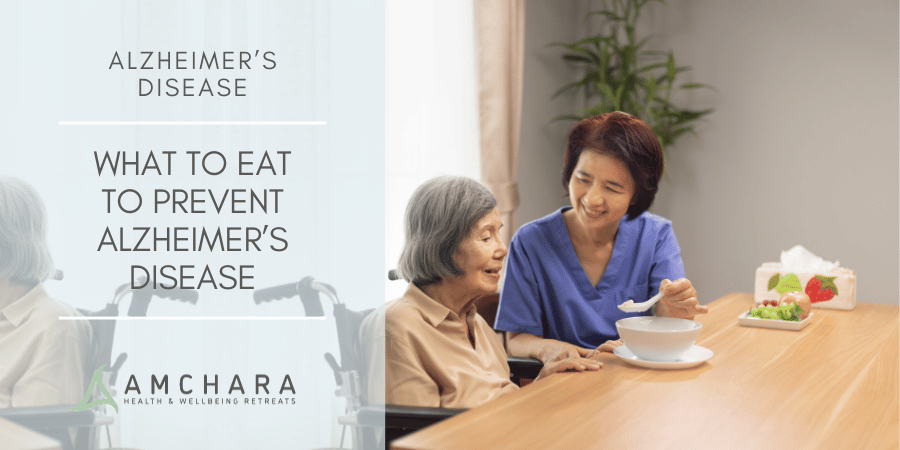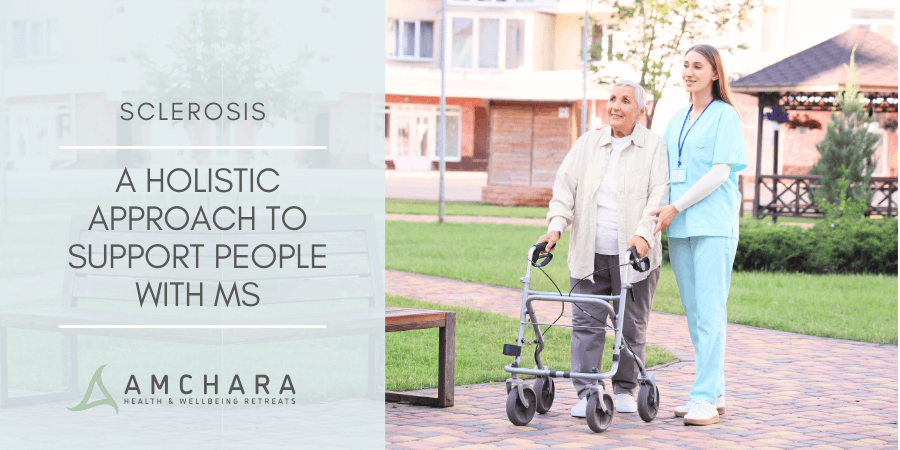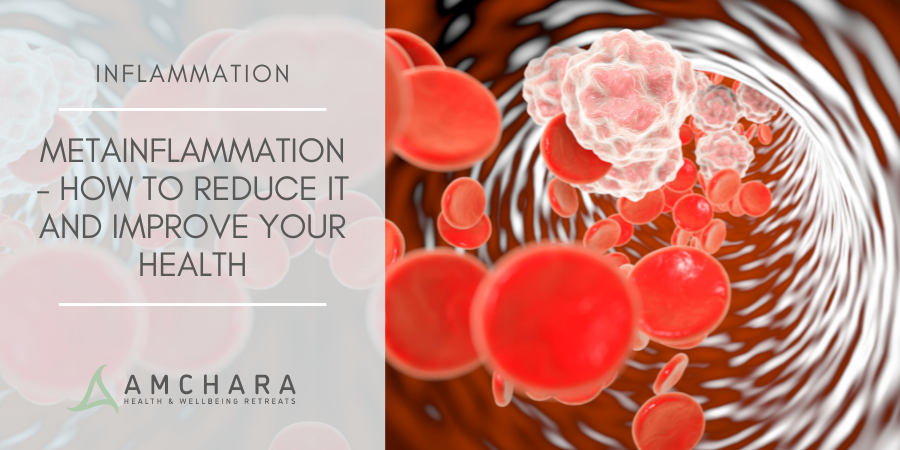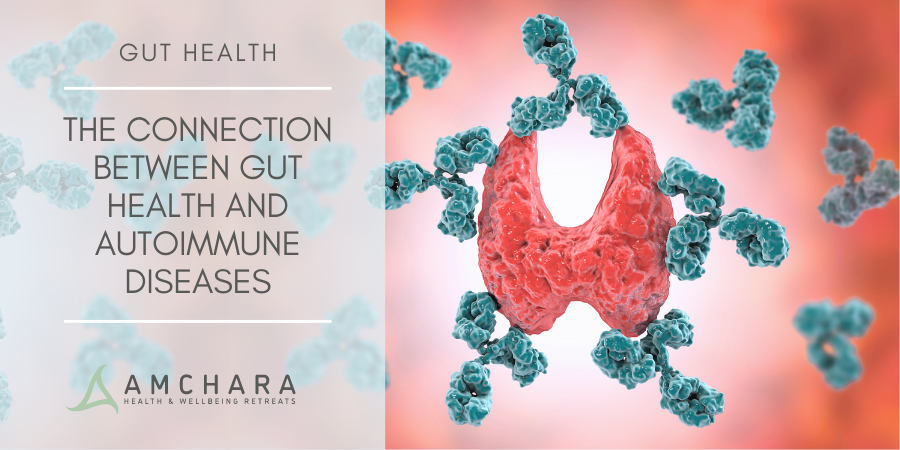Alzheimer’s Disease is a degenerative brain disease.
It’s the most common form of dementia, estimated to affect over half a million people in the UK, and it’s on the increase.
Worldwide, one person develops dementia every three seconds, and the number of sufferers is doubling every twenty years.
We always take an evidence-based approach to help you on your journey to optimal health and in this article we will look at the top 6 foods and nutrients that may help prevent development of Alzheimer’s.
What is Alzheimer’s Disease?
Alzheimer’s is a condition characterised by a decline in brain functioning.
It affects memory, thinking skills and other mental abilities.
It begins with minor symptoms, known as mild cognitive impairment (MCI), such as forgetting about recent conversations or forgetting place names. These are often put down to the natural process of ageing.
As the disease progresses, further symptoms develop including confusion, disorientation, problems with speech, coordination, comprehension and personality changes such as aggression and suspicion.
How Many People are Affected?
The risk of developing Alzheimer’s increases with age, and according to the NHS now affects around 1 in 14 people over 65 in the UK and about 1 in 6 people over 80.
It does affect younger people too – 1 in every 20 cases involve people aged between 40 and 65.
Although we don’t know exactly what causes the disease, it’s now becoming clear there are many factors and mechanisms involved in the development of Alzheimer’s.
There are currently no medical drugs on the market which can reverse Alzheimer’s.
It has been suggested that as many as one in three cases are attributable to diet and lifestyle factors.
A new study looked at a diet plan dubbed the MIND diet, loosely based on the Mediterranean diet, which was found to reduce the risk of developing Alzheimer’s disease by over 50%. Even those people who didn’t follow the diet 100% but followed it moderately well, had their risk of Alzheimer’s reduced by around one third.
Here are our top 6 foods and nutrients to help keep your brain healthy.
1. Omega-3 Fatty Acids
A huge amount of research has revealed the many vital roles of omega-3 fatty acids for our health, but recent studies have indicated its important role in reducing the risk of Alzheimer’s.
Omega-3 fats play a role in reducing inflammation.
Scientists believe cells called microglia play a role in breaking break down amyloid plaques.
It appears these cells can be over-stimulated by the immune system and destroy healthy brain cells instead. Substances that can reduce inflammation will therefore be useful to prevent this happening.
Omega-3 oils are also an essential component of our cell membranes and assist with brain cell communication.
High levels of omega-3 fatty acids are found in oily fish like salmon, mackerel and sardines, as well as flaxseeds, pumpkin seeds, walnuts and flaxseed oil.
One study on over 5000 adults aged over 55 found those who regularly ate fish were 70% less likely to develop Alzheimer’s disease than those who did not regularly eat fish.
2. Vitamins C and E Rich Foods
Hundreds and thousands of chemical reactions occur in our brains every day.
During the course of these reactions, substances called free radicals are produced. These are unstable molecules which can damage healthy cells.
It is thought oxidative stress, brought about by free radical production, could be one reason for the cognitive decline which occurs in Alzheimer’s.
Antioxidants are substances which can stabilise free radicals, so they don’t continue to damage cells.
There are many different antioxidants, but perhaps two of the most well-known are vitamin C and vitamin E.
The brain is particularly susceptible to oxidative stress because it uses a huge amount of energy and therefore oxygen.
Oxidative stress can cause amyloid plaques and amyloid plaques can increase oxidative stress, in a vicious cycle.
Studies have shown a diet with plenty of foods rich in these two vitamins can help to reduce the risk of Alzheimer’s disease.
In one study, researchers noted that vitamin C was actually capable of dissolving amyloid plaques in the brain.
Vitamin E is a fat-soluble antioxidant and is useful for protecting cell membranes.
It appears it is incorporated into cell membranes where it alters their signalling, which is of obvious benefit in brain cells. Interestingly, vitamin E lasts longer in the brain than it does in other organs, giving a clue as to its importance.
Many studies have noted a decline in cognitive function associated with vitamin E deficiency.
Researchers have also found that vitamin E can prevent the oxidative stress which results from amyloid plaque formation.
Vitamin C rich foods include raw fruit and vegetables such as currants, red peppers, carrots, berries and citrus fruits as well as broccoli and spinach. Berries, especially blueberries, contain good levels of vitamin C and E, as well as anti-inflammatory anthocyanins which also act as antioxidants.
Vitamin E rich foods include seeds, nuts and olive oil.
Bear in mind Vitamin C cannot be stored by the body, so we need a constant supply. It’s also easily destroyed by heat and by storing foods for long periods.
3. Flavonoid Rich Foods
Flavonoids are a type of polyphenol and are responsible for the vivid colours of fruit and vegetables.
These are plant chemicals traditionally used in Chinese and Ayurvedic medicine.
There are over 6,000 known flavonoids, with various subgroups.
Two of the best-known flavonoids are quercetin and catechin.
In plants, the role of flavonoids is to provide the pigmentation in flowers which attracts pollinating insects and helps to protect the plant from the sun’s radiation.
Flavonoids act as antioxidants, as well as being anti-inflammatory.
They appear to be able to act as modulators for the brain’s signalling pathways, inhibit enzymes involved in the creation of tau tangles, and disrupt amyloid plaque formation.
One study found those people aged over 65 eating a diet with the highest level of flavonoids were 50% less likely to develop dementia over a 5-year period than those with the lowest intake.
Foods containing high levels of flavonoids include berries, apples, grapes, citrus fruits, onions, spinach, asparagus, Brussels sprouts, garlic, kale, beans and legumes, as well as green tea.
Cooking, especially overcooking, can destroy flavonoids.
They tend to be concentrated in the skins of fruit and vegetables, so eat them unpeeled.
4. Turmeric
Turmeric contains a substance, known as curcumin, which gives the spice it’s vibrant yellow colouring.
Turmeric is a relative of ginger and has been used for thousands of years in eastern medicine and as an ingredient in curries. It’s a powerful antioxidant and anti-inflammatory.
The availability of curcumin to the body appears to increase when it is combined with black pepper, as well as fat. In India curries are usually made with ghee, so this combination could explain the slightly lower incidence of Alzheimer’s in India.
Autopsies that have been carried out on people who had Alzheimer’s prior to their deaths have uncovered areas of protein in their brains, known as amyloid plaques.
Beta-amyloid is a fragment of a protein called amyloid precursor protein which is naturally found in the fatty substance which surrounds our brain cells.
Normally these protein fragments would be eliminated from the body but they appear to accumulate in Alzheimer’s. The result is hard, insoluble plaques which interfere with synaptic functioning. A synapse allows each nerve cell to communicate with the next one.
Studies carried out on curcumin have shown best results if it’s eaten with a fat such as fish oil, when it has been observed to promote the breakdown of amyloid plaques.
Use turmeric in curries, casseroles and smoothies or try a delicious warming turmeric latte.
Blend 1 tablespoon turmeric with just over two cups of almond or coconut milk, 1 tablespoon coconut oil, a quarter teaspoon each of cinnamon, black pepper, and ginger root powder.
5. Olive Oil
Research has found that people who use olive oil to cook with, particularly as part of the traditional Mediterranean diet, see more protection from cognitive decline.
This is not altogether surprising as olive oil acts as an antioxidant, but it appears that it also has other effects on the brain.
One study looked at the effect of extra virgin olive oil on mice genetically susceptible to developing Alzheimer’s disease.
Two groups were fed their regular diet, but only one of them had extra olive oil added to it. The researchers then measured the mice’s learning skills and memory, including that for locations by using a maze.
The mice fed the olive oil performed much better at the learning and memory tasks than the others. Even more surprisingly they actually fared better than at the start of the experiment. In other words their memory seemed to have improved.
Olive oil also appears to preserve the health of the synapses in the brain, which can be measured by looking at a protein which is a marker for synaptic integrity.
Olive oil has been found to encourage autophagy, the process by which worn-out cells disintegrate and release accumulated debris. It has also been found to reduce the formation of amyloid plaques and tau tangles, also known as neurofibrillary tangles.
Tau tangles are twisted, insoluble fibres found in the brain of Alzheimer’s sufferers and prevent nutrients from reaching the cells.
Vitamin B Rich Foods
A deficiency in the B vitamins makes it more difficult to engage in tasks that require brain power.
Recent studies have shown that supplementing with B vitamins more or less stopped the deterioration of grey matter in the areas of the brain associated with Alzheimer’s.
Scientists have observed that Alzheimer’s patients are more likely to be low in B vitamins, particularly vitamin B12.
Even slightly low levels of B vitamins can result in raised levels of a substance known as homocysteine, a naturally-occurring amino acid which is produced in each of our cells as part of the body’s methylation process.
Homocysteine would usually be metabolised on to other harmless amino acids and should not build up in the blood.
However, certain nutrients such as vitamins B12, B2, B6 and folic acid are needed for this conversion to happen. If these are in short supply and the conversion slows, homocysteine levels will rise. It can then cause damage, possibly by encouraging a build-up of free radicals in cells.
The level of homocysteine in the blood can be a predictor for potential health problems such as Alzheimer’s Disease, as well as cardiovascular disease.
Researchers found dementia rates were double in people with high homocysteine levels. Homocysteine has been successfully lowered in studies by supplementing B vitamins.
Because B vitamins work synergistically with one another, it’s best to ensure you are getting the full range.
- B vitamins are plentiful in green leafy vegetables like broccoli, kale and spinach, as well as in pulses, seeds, dried beans and whole grains.
- Cruciferous vegetables like broccoli, cauliflower, bok choy and brussels sprouts, along with tomatoes, carrots, sweet potatoes, kale and spinach contain plant chemicals known as carotenoids.
- Examples of carotenoids include lutein, lycopene, beta carotene and zeaxanthin. Research has found they can also reduce homocysteine levels.
By including these foods in your diet regularly, you’ll be doing your brain a favour.
For even more memory protection, combine these healthy suggestions with plenty of exercise, manage your stress, get enough sleep and stimulate your mind. Your brain will definitely thank you.
Do you have any more top nutrients to add to our list to help boost your brain’s health?
We’d love to hear from you.
Article written by: Cathy Robinson BScDipNutMed
Helpful Resources:
- Alzheimer’s and Dementia in the United Kingdom – www.alz.org
- Online learning resources for professionals – alzheimers.org.uk
- Alzheimer’s Research UK – alzheimersresearchuk.org
- NHS Dementia guide – www.nhs.uk
Charities for people with dementia
- National Dementia Helpline 0300 222 11 22
- Dementia UK 0800 888 6678
- Alzheimer’s Research UK 0300 111 5 111
- Age UK 0800 055 6112
Forum
Blog Articles Related To Alzheimer’s
- Can Yoga and Meditation Reverse Alzheimer’s Disease?
- 10 Ways of Reducing Alzheimer’s Risk
- Green Tea – improves weight loss and memory too!
Article Resources:
- Vitamin B12 levels in Alzheimer’s disease: association with clinical features and cytokine production. Politis A, et al. J Alzheimers Dis. 2010
- Protective effects of flavonoids against Alzheimer’s disease-related neural dysfunctions. Bakhtiari et al, Biomedicine & Pharmacotherapy. Volume 93, September 2017, Pages 218-229
- Flavonoids as therapeutic compounds targeting key proteins involved in Alzheimer’s disease. Baptista FI, et al. ACS Chem Neurosci. 2014.
- Intake of flavonoids and risk of dementia. Commenges D et al. Eur J Epidemiol. 2000 Apr;16(4):357-63.
- Treatment with vitamin C dissolves toxic protein aggregates in Alzheimer’s disease, Science Daily August 18, 2011
- Role of Vitamin E in the Treatment of Alzheimer’s Disease: Evidence from Animal Models, Agnese Gugliandolo, et al Int J Mol Sci. 2017 Dec; 18(12): 2504.
- Vitamin E Prevents Alzheimer’s Amyloid beta-Peptide (1-42)-Induced Neuronal Protein Oxidation and Reactive Oxygen Species Production. Yatin SM1, Varadarajan S, Butterfield DA. J Alzheimers Dis. 2000 Jun;2(2):123-131.
- Incidence of Alzheimer’s disease in India: A 10 years follow-up study, P. S. Mathuranath, et al, Neurol India. Author manuscript; available in PMC 2013 Nov 1.
- Seshadri S, Beiser A, Selhub J, et al. Plasma homocysteine as a risk factor for dementia and Alzheimer’s disease. N Engl J Med. 2002
- 5. Douaud G, Refsum H, de Jager CA, et al. Preventing Alzheimer’s disease-related gray matter atrophy by B-vitamin treatment. Proc Natl Acad Sci USA. 2013
- Fruits and vegetables increase plasma carotenoids and vitamins and decrease homocysteine in humans. Broekmans WM, et al. J Nutr. 2000.








